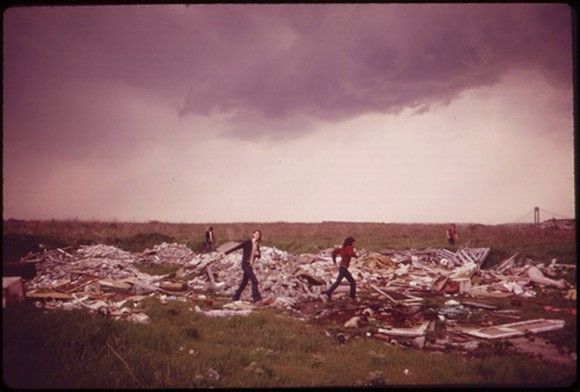Toxins Found In Gravesend Bay Waters Fuel Waste Transfer Station Opposition

Opponents of the proposed Gravesend Bay waste station had their cause buoyed by the discovery of potent toxins in the waters of the Bay, according to a report by the New York Daily News.
The tests, conducted by the Sanitation Department, found high concentrations of the pesticide chlordane and the insecticide mirex, substances both banned by the Environmental Protection Agency (EPA). Mercury was also found with the other substances in the Bay’s sediment.
As we’ve previously reported, opposition to the proposed waste station has been fierce, garnering bipartisan support from local politicians along with 88-year-old cancer survivor, Dorothy Mortman.
Mortman believes that local pollution gave her cancer 15 years ago and she doesn’t want to see any other local residents become victims of cancer-causing pollutants.
“It’s too late for me because I’m an old woman, but we have young children here,” Mortman told the Daily News.
Assemblyman William Colton believes that the recent tests are more than enough proof to halt expansion of the waste transfer station.
“This report is the smoking gun,” said state Assemblyman William Colton (D-Bensonhurst), who thinks the toxins are left over from a city garbage incinerator that operated on the site for 30 years.
“We fear for beachgoers if dredging is done,” said Colton, who sent a letter with community groups and residents to Sanitation Commissioner John Doherty demanding planned construction at the Bay 41st St. site be stopped.
“This would contaminate the fish, the shellfish and the bird sanctuary at Drier Offerman Park.”
The new report is being used by Colton and other opponents of the waste transfer station in their Brooklyn Supreme Court case scheduled for next week.
Despite the outcry against the construction of the waste station, the Sanitation Department interpreted the results of their tests in a less harsh light.
“[Contamination levels] are consistent with levels in New York Harbor generally, and sediment quality will improve after dredging,” Sanitation spokeswoman Kathy Dawkins told the Daily News.
Is anybody put at ease by that quote which implies that your typical New York City waters are laced with dangerous pesticides, insecticides and mercury? Something to consider before sticking your toes into any New York coastline.




